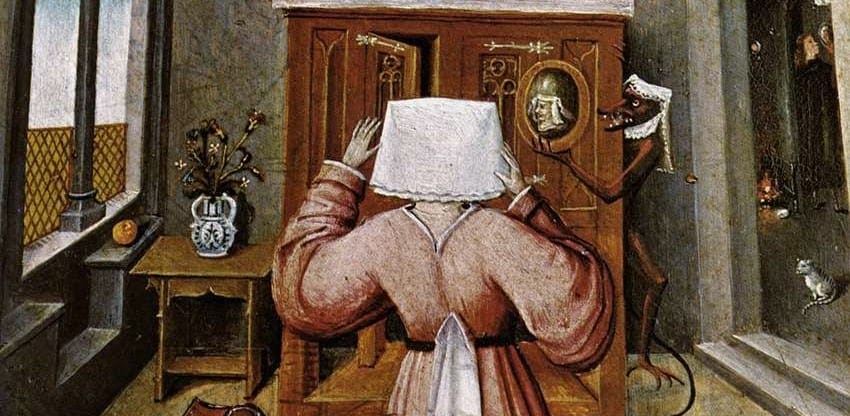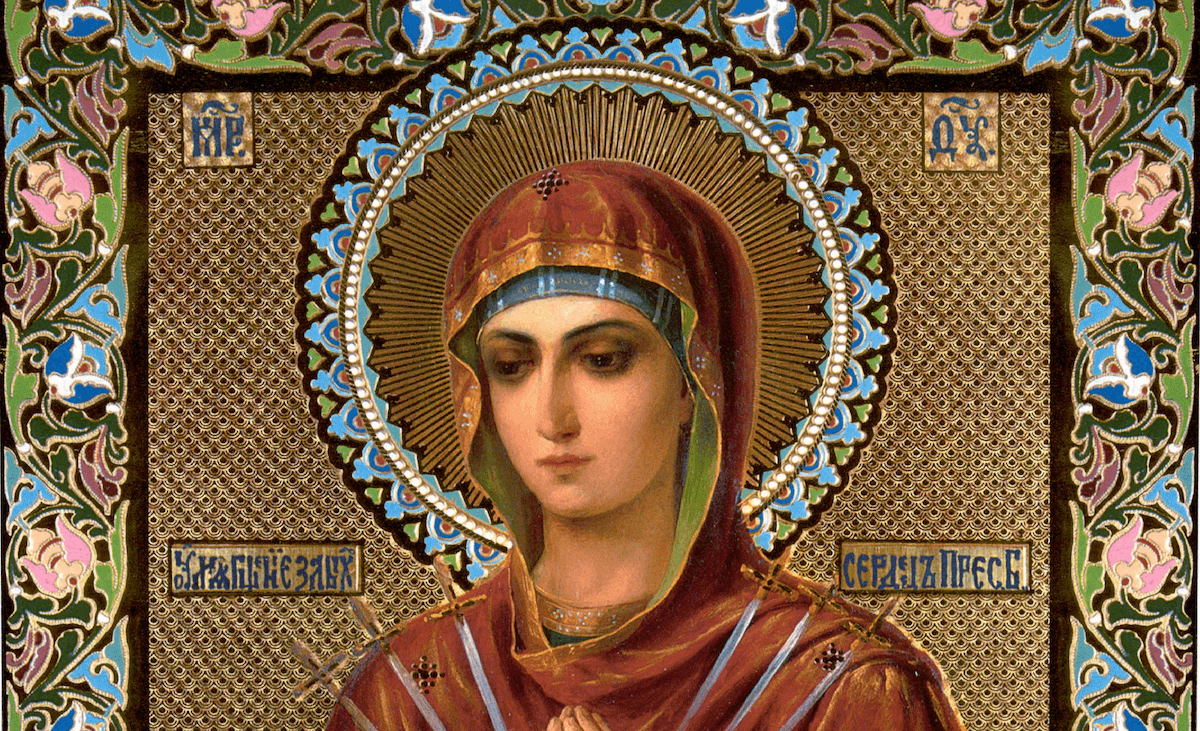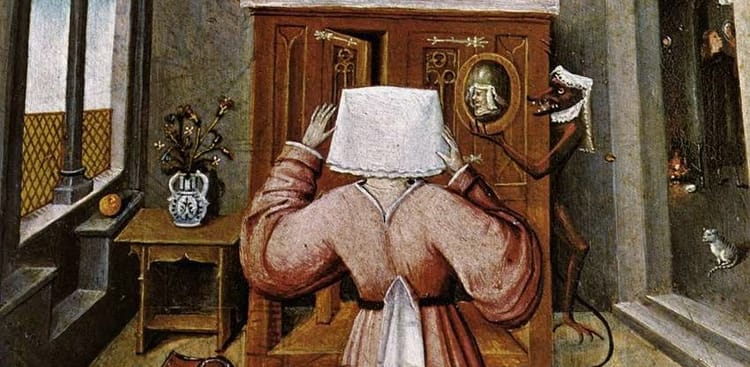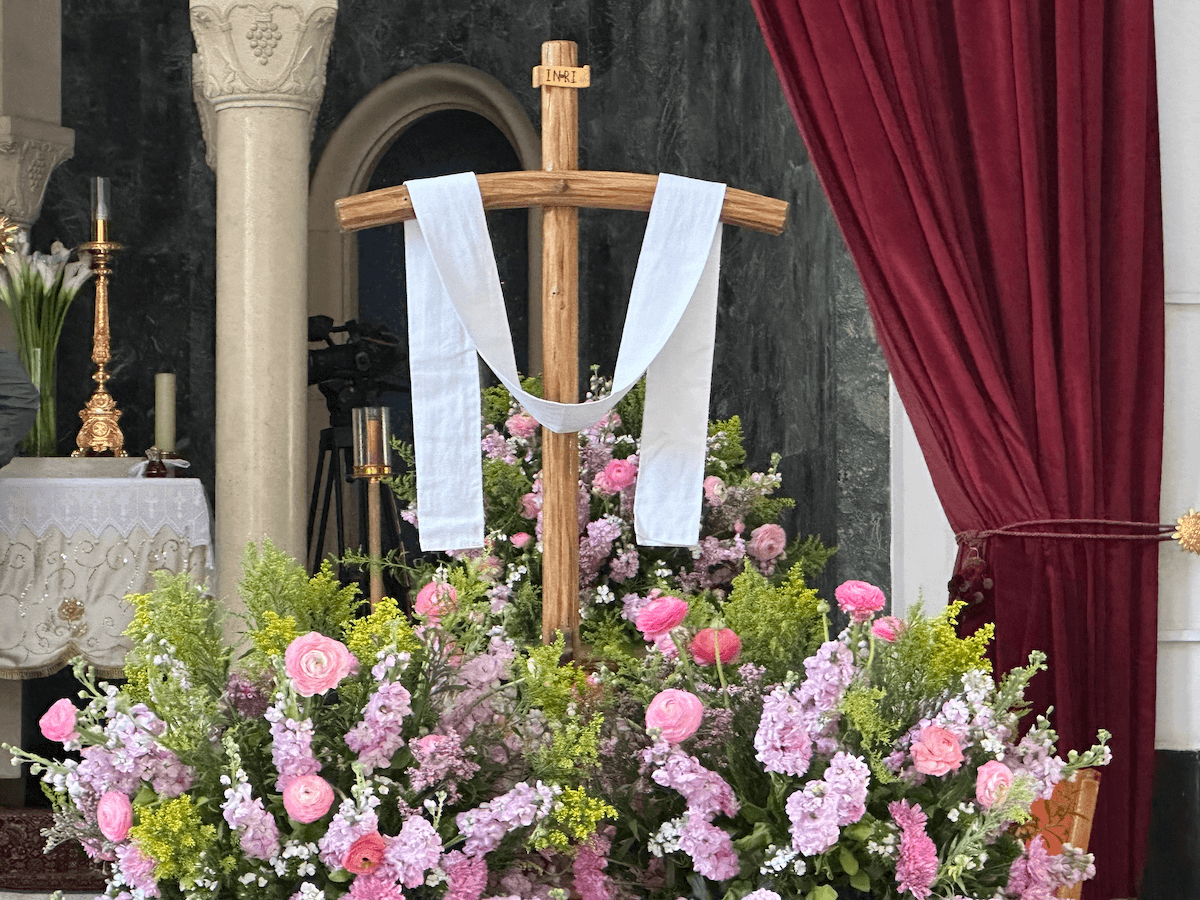On Pride. Part 2

We started talking about pride, but since we're approaching the Great Lent, we shall discuss it one last time; particularly how it gets in the way of our repentance. The Church Fathers say:
Nothing cultivates pride like a good conscience, unless we're vigilant. That's why Christ, who knew this vice often finds us after we've done something good, taught the apostles: 'So you also, when you have done all that is commanded you, say, 'We are unworthy servants; we have only done what was our duty.' (Luke 17:10) [1]
So even if we're full of virtue, we should not be proud, but should say: 'None of this is ours, and all we do is in Your name alone'. Sinners have no reason to be proud, and the righteous are in grave danger when it comes to this. We should be particularly wary of pride when we've already done something, not when we're idle.
What, then, can we be proud of? Nothing, as the Fathers teach. John Climacus says: 'Only those virtues which you have obtained without the co-operation of the mind belong to you, because your mind was given you by God. Only such victories as you have won without the co-operation of the body have been accomplished by your efforts, because the body is not yours but a work of God'[2].
So no matter what we accomplish, all of it is God's, not ours. God made us so that we wouldn't do evil at all, yet we ourselves brought sin and corruption into our souls. All spiritual gifts are of God. You won't be proud of someone else's possessions, clothing or literary works, because you know they're not yours. The same thing is true for God's works. 'You can only be proud of your sins', says one of the Fathers. Yet being proud of what God gave you is pure madness. As St. Isaac the Syrian says, those gifts are not yours, they're God's; if you won't walk in His commandments and will, He'll take all of those gifts away and give them to someone who honours Him. You'll be akin to a man who got a quill freshly dipped in ink taken from his hands. We shall always remember that all of it is not our fortune but God's riches, and all we do is squander and waste them.
The Lord says that whoever has pride has a demon in their heart. We read in John Climacus: 'A proud monk has no need of a devil; he has become a devil and enemy to himself'[3].
No matter what such a person does, it's all in vain and bears no fruit. St. Maximus the Confessor says that a proud monastic won't scorn at anything; he'll fast, hold vigil, sleep on bare ground and so on, but he'll only do so as long as his demon permits him. He only does all of that for himself, for as we previously discussed, a vainglorious man is an idolater.
We must, especially during this time of repentance, forget all of our virtues, because they're all God's. Whoever is proud of them is in wretched condition, for he has a devil in his heart. God alone can help such a person; St. John Climacus says this disease is 'humanly incurable'[4]. We can only pray for such a person, but we can't say or do anything to help them: 'The man enmeshed in pride will need the help of God, for the salvation of men cannot avail him'[5].
How, then, should we fight this condition? If we did a good work, we should remember that pride often creeps on us disguised as gratitude. Let us remember the Pharisee and the publican. The Pharisee was, in fact, not at all like the publican; the publican didn't have his works. Yet the Pharisee squandered his reward with his vainglory. We must never start a prayer, especially a confession, with gratitude. We must never say: 'Thanks be to God that I don't have this or that, that I do so much good'; yet we do this so often. St. John Climacus says this about pride:
Let all of us who wish to avoid this pit listen: this passion often finds food in gratitude, for at first it does not shamelessly advise us to deny God. I have seen people who thank God with their mouth but mentally magnify themselves. And this is confirmed by that Pharisee who said ironically: God, I thank Thee.[6]
The problem isn't that we should not be ever grateful to God; it's true that everything is His gift. The problem is that by saying 'Thank you that I've become so good', we're shifting the focus towards ourselves. So those of us who have done some good works should remember that we should start prayer with repentance and humility, and only then thank God; first of all for giving us enough time to repent. We should remember we can never find God through pride. Pharisee's gratitude will not bring us salvation or repentance. Pride, first and foremost, prevents us from achieving true contrition, for pride is a 'denial of God’s help' and 'an invention of the devil'; and if we're yet to get there, we've already arrived at the stage of 'humiliation of our neighbour and the shameless parade of our labours'.
We should also remember that just as pride stands in the way of repentance, so does despair. Despair can be of two kinds: one comes from many sins and much sorrow, and the other from pride and vanity. If I spent all my life praising myself and putting all of my hope in myself and my own exertion, convinced I'm not like everyone else, and then I fell and turned out to be even worse than others, it's only natural I'd fall into despair. St. John Climacus says:
There is a despair that is the consequence of a multitude of sins, of a burdened conscience and unbearable sorrow because the soul is covered with a multitude of wounds and it sinks under the burden of them into the depth of despair. And there is another kind of sorrow that comes to us from pride and conceit, when someone considers that he has not deserved a fall that he has had. The observant will find the distinguishing feature of each: the one cooly gives way to indifference, the other in despair still clings to his struggle — which does not accord with his state. The former is cured by temperance and good hope, and the latter by humility and the habit of not judging anyone.[7]
Neither kind of despair, of course, could ever bring us to repentance.
How to fight despair that comes from pride? St. John Climacus teaches that this kind of sorrow can be cured by humility and the habit of not judging anyone. The kind of pride that comes from a magnitude of sins can be cured by temperance and hoping for our Lord's mercy, for He said that we must forgive our neighbour seventy seven times.[8] We must remember that despair is a deadly sin, and never forget the advice our Lord gave to St. Peter. If He told us to forgive so much, despite our weakness, He will of course do that Himself as long as we repent. John Climacus says: 'Do not be surprised that you fall every day; do not give up, but stand your ground courageously'.[9] More on this: 'In times of despondency never fail to bear in mind the Lord’s commandment to Peter to forgive a person who sins seventy times seven (Mt 18:22). For He who gave this command to another will Himself do far more. But when we are exalted let us again remember the saying: He who shall keep the whole spiritual law, and yet stumble in one passion, that is, fall into pride, has become guilty of all.'[10]
The sort of despair that comes from pride, when a person loses all hope they previously had in their own selves and their exertions alone, even leads some to suicide.
But when we are exalted let us again remember the saying: He who shall keep the whole spiritual law, and yet stumble in one passion, that is, fall into pride, has become guilty of all (James 2:10)[11]
As we enter these days of repentance, we should remember that the key things standing in our way to contrition are pride and despair. Pride ought to be fought not only by those who are weak in faith, but also those who have done some good works. Let us thank God not for our virtues but for the contrition He gives us, for the good works are not ours.
It could seem that despair and pride are very opposite of each other by nature, but, strangely enough, they can sometimes join forces to prevent us from repentance. St. John Climacus says:
Just as a marriage and a funeral are the very opposite of each other, so too are pride and despair. But as a result of the confusion caused by the demons it is possible to see the two together.[12]
We should strive to do our best to excel in virtue, yet attribute all of our good works to God and not ourselves. This way, we'll slowly but steadily learn to overcome everything that's stopping us from reaching true contrition.
References
1. St. John Chrysostom. Homilies on Isaiah. Homily 3, 1.
2. The Ladder of Divine Ascent, 23.16
3. The Ladder of Divine Ascent, 23.32.
4. The Ladder of Divine Ascent, 23.10.
5. The Ladder of Divine Ascent, 23.36
6. The Ladder of Divine Ascent, 23.3.
7. The Ladder of Divine Ascent, 26.89.
8. The Ladder of Divine Ascent, 26.89.
9. The Ladder of Divine Ascent, 5.30.
10. The Ladder of Divine Ascent, 26.147.
11. The Ladder of Divine Ascent, 26.146.
12. The Ladder of Divine Ascent, 26.151


